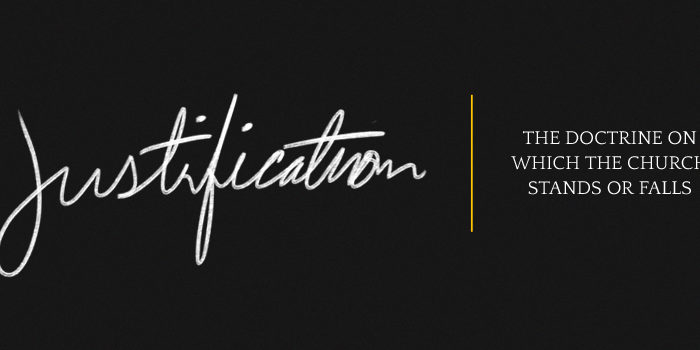
Do we really understand “union with Christ”? (J. V. Fesko)
In the new issue of Credo Magazine, “Justification: The Doctrine On Which the Church Stands or Falls,” J. V. Fesko contributed a book review called, “Do we really understand ‘union with Christ’? Adding clarity to an essential doctrine.” Fesko’s review is of Marcus Johnson’s new book, One with Christ: An Evangelical Theology of Salvation (Crossway). J. V. Fesko is Academic Dean and Professor of Systematic and Historical Theology at Westminster Seminary California.
Fesko begins his review:
 Marcus Johnson brings his book, One with Christ: An Evangelical Theology of Salvation, to a crowded field of literature on the subject of union with Christ, with the hopes of encouraging readers to consider the importance of the doctrine. In this noble venture, Johnson ably presents the significance of this subject across a broad cross-section of other doctrines, such as the incarnation, justification, sanctification, adoption, perseverance, ecclesiology, and the sacraments. And throughout the book Johnson dialogs with several conversation partners, including Calvin, Luther, and T. F. Torrance.
Marcus Johnson brings his book, One with Christ: An Evangelical Theology of Salvation, to a crowded field of literature on the subject of union with Christ, with the hopes of encouraging readers to consider the importance of the doctrine. In this noble venture, Johnson ably presents the significance of this subject across a broad cross-section of other doctrines, such as the incarnation, justification, sanctification, adoption, perseverance, ecclesiology, and the sacraments. And throughout the book Johnson dialogs with several conversation partners, including Calvin, Luther, and T. F. Torrance.
One with Christ holds several positive aspects. Johnson provides the broader Evangelical church a helpful survey of the ways in which union with Christ bears upon a number of doctrines, including the doctrines of the church and sacraments. There are likely many who do not consider these connections. Johnson sets forth the different aspects of union with Christ as it deals with salvation and the important doctrines of justification, sanctification, adoption, perseverance, and glorification. On this note, Johnson’s advocacy of the doctrine of the imputation of Christ’s righteousness and his criticism of N. T. Wright for failing to embrace the doctrine are positive and noteworthy (107 n. 37). With Wright’s latest monster tome on the theology of Paul now published, questions about imputed righteousness will likely reappear on the debate stage. Readers will have a good resource with Johnson’s book because he shows how the Scriptures teach that union with Christ and imputed righteousness are compatible and necessary doctrines.
The book’s strengths aside, there are two key areas that reveal weaknesses and show a need for greater (1) historical engagement and (2) clarity on how justification and union with Christ relate. . . .
To finish reading Fesko’s critique, take a look at the new issue of Credo Magazine today.
Justification: The Doctrine on which the Church Stands or Falls
While we could point to many different factors that led the sixteenth century Protestant Reformers to break from Rome, perhaps one that would be at the very top of the list is the doctrine of justification by faith alone. For Luther and Calvin, this doctrine is the very hinge on which the Christian religion turns. In part this is because sola fide is what sets Protestants apart. While every other religion puts something of man into the equation, Protestantism removes man’s works from the justification formula altogether. Therefore, the “sola” in sola fide makes all the difference in the world.
With over 2,000 years of church history in our rear view mirror, it appears that sola fide is a doctrine that comes under discussion in every generation. Our generation is no exception. Much dialogue continues over the New Perspective on Paul, Protestant and Catholic statements of agreement, and the relationship between justification and the Christian life. In this issue I am proud to welcome some of the finest thinkers on the subject in order to better understand what Scripture says about how sinners can be made right with a holy God.
Contributors include Thomas Schreiner, Michael Allen, Michael Horton, Philip Ryken, J.V. Fesko, Matthew Barrett, Korey Maas, Guy Waters, Brian Vickers, Fred Zaspel, and many others.

